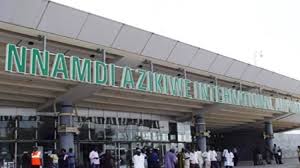As African countries begin to reopen land borders and air space,
The World Health Organisation (WHO) has appealed to governments to take effective measures to mitigate the risk of a surge in coronavirus infections.
The WHO Regional Director for Africa, Matshidiso Moeti, made the call against the backdrop of the lift of ban on air travels across the continent.
According to her, while opening the borders are vital for the free flow of goods and people, initial analysis by WHO found that lockdown along with public health measures reduced the spread of the virus.
She said “Air travel is vital to the economic health of countries, but as we take to the skies again, we cannot let our guard down. Our new normal still requires stringent measures to stem the spread of COVID-19.”
At the beginning of the spread of the virus, many African countries had closed their air and land borders to contain the spread of the virus from hotspots zones like Aisa, Europe and the USA.
Africa recorded its first case in Egypt on February 14 through a traveller returning from Asia. Afterwards, many countries on the continent reported confirmed cases through travellers from Asia, Europe and the United States.
To start international air travel, WHO recommended that countries should assess the epidemiological situation to determine whether maintaining restrictions outweigh the economic costs of reopening borders.
“It is also crucial to determine whether the health system can cope with a spike in imported cases and whether the surveillance and contact tracing system can reliably detect and monitor cases.”
Ms Moeti said it is important that countries have systems in place at points of entry including airports.
“Comprehensive entry and exit screening should be considered based on risk assessment and cost-benefit analysis, and as part of the overall national response strategy.
“Such screening may target, as a priority, direct flights from areas with community transmission. In addition, observance of preventive measures such as personal hygiene, cough etiquette, physical distancing remains crucial. Passengers should be registered and followed up, and if they develop symptoms be advised to inform health authorities,” she added


